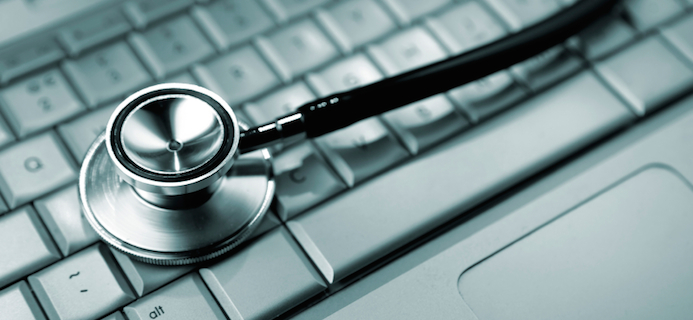A fifth of Brits turn to Google rather than their own doctors for medical diagnosis, a survey in March last year found and recent research has highlighted why we’re so obsessed with Dr Google
More and more people are turning to the internet to self-diagnose their medical problems, which has led to a knock-on effect of increasing online hypochondria. Experts in the medical profession are urging people to visit their doctor if they have any concerns over their health, rather than seeking advice from online forums or even medical sites. They are actively seeking to warn against the trend of self-diagnosis or ‘cyberchondria’.
Recent research has revealed that the internet may actually make hypochondria worse, due to the alarming amount of questionable information available on websites like Wikipedia. Research by Dr Thomas Fergus, at the department of Psychology and Neuroscience at Baylor University in Waco, Texas found that having any health concerns, whether founded or unfounded, can cause the sufferer more worry and stress about the possible consequences of being ill. Occasionally, this kind of worry has been known to escalate into the realm of obsession.
Dr Fergus’ findings were published in Cyberpsychology, Behaviour and Social Networking. The study itself involved an examination of 512 healthy people whose average age was 33, in a bid to determine how online searches related to health affected the anxiety levels of those performing the searches. Dr Fergus said: ‘The more you search, the more you consider the possibilities. If I see a site about traumatic brain injuries and have difficulties tolerating uncertainty, I might be more likely to worry that is the cause of the bump on my head.’
So why are people turning to self-diagnosis?
Much of this trend can be attributed to the abundance of information available online at a moment’s notice – much less time than it would take to book and appointment with, and see their doctor. Alternatively people are turning to the internet if they consider their symptoms too embarrassing to take to a doctor. The delicate nature of their problem might lead them to feel even more vulnerable towards potentially inaccurate information online, which underlines the need to discuss your problems in person.
The dangers of self-diagnosis
It may sound obvious, but without the assistance of a trained medical professional you’re likely to exaggerate the symptoms you feel. Anxiety about a sudden onset of migraine or leg pain can immediately cause you to jump to conclusions, and even increase the severity of the symptoms you feel due to added anxiety which raises your blood pressure and heart rate.
As well as over-diagnosing there’s the risk of under-diagnosing. If you’ve concluded that you have a certain condition, it’s absolutely still worth seeing a doctor in case this turns out to be something even more concerning.
While some obtain a medical insurance policy that gives them ready access to a specialist of their choice at a convenient time, others choose to self-diagnose, and worse, to self-medicate, against which medical professionals strongly advise.
While the internet can provide useful information such as breaking news or historical facts, it is no substitute for the information and the help you can get from your GP.
RELATED:
Dr Google – how to avoid online quacks
10 best medical websites (as chosen by doctors)
Like this article? Sign up to our newsletter to get more articles like this delivered straight to your inbox.






















































